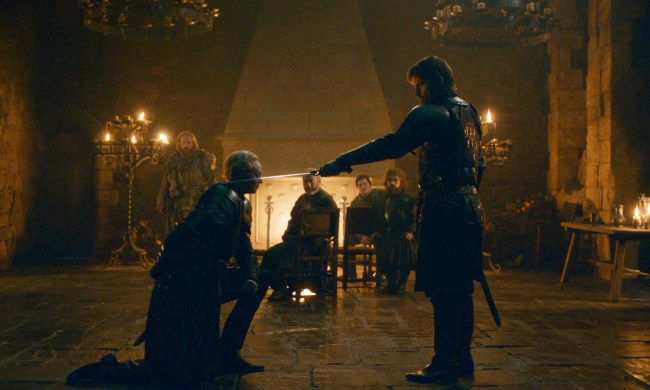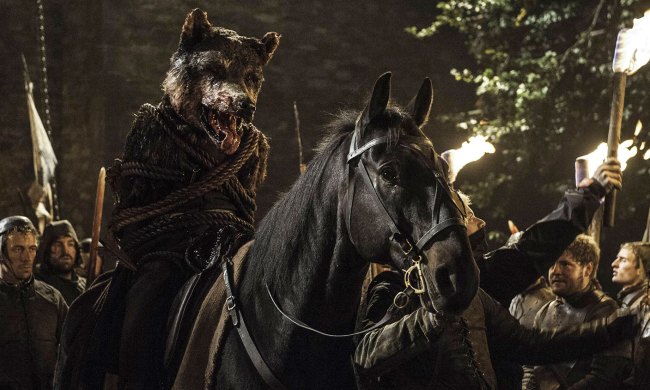
Ending a TV show well is an infamously hard thing to do. Plenty of great, talented writers have tried and failed over the years, and even more fans have been left disappointed as their favorite shows failed to stick the landing. While bad final episodes have been a part of the TV landscape for decades, no series finale in modern memory has been as universally and passionately detested as Game of Thrones‘.
After entertaining millions of viewers for eight years, the HBO drama delivered a final trio of rushed, ham-fisted episodes in May 2019 that brought its story to an incredibly disappointing, unearned conclusion. The show that had long held the TV crown subsequently faded from the world’s pop cultural conversations — proving that sometimes the destination is as important as the journey. Many longtime fans seemingly pushed Game of Thrones from their minds altogether, while others decided to place all their hopes for a better ending on the two remaining Song of Ice and Fire books that author George R. R. Martin still hasn’t published.
To date, no one has tried to change the public’s opinion about Thrones‘ finale. Most viewers, in fact, still seem just as angry about the show’s final episode as they did when it premiered. In honor of the finale’s five-year anniversary this week, though, it’s worth asking again: What exactly went wrong?
Game of Thrones’ finale put its characters last

Game of Thrones earned a reputation while it was on the air for being the most ruthless and shocking show on television — and for good reason.While avoiding spoilers and trying to witness the series’ biggest moments happen live fueled a lot of viewers’ active, weekly interest in it, what grounded Thrones all along and actually made it interesting to watch was its characters. Complex and capable of tremendous growth, it was figures like Jaime Lannister (Nikolaj Coster-Waldau), Daenerys Targaryen (Emilia Clarke), Sansa Stark (Sophie Turner), Arya Stark (Maisie Williams), and Jon Snow (Kit Harington) that made sticking with Game of Thrones through all of its many, painful turns a genuinely worthwhile experience.
For its first six seasons, the show successfully kept its focus on its characters, even as its size and set pieces only continued to grow. In its final two seasons, though, Thrones abandoned its character-first approach to drama. It leapfrogged over years of necessary character development to turn Clarke’s Daenerys into a tyrannical conqueror and abandoned the brutal logic of its fictional world in order to justify its increasingly unearned depiction of her as a literal mad queen.* The closer Thrones got to its finale, the more convenient its plot twists began to seem. The organic unpredictability of its storytelling was thrown out in favor of mechanical, reverse-engineered plotting that made it suddenly seem like characters were being moved around solely with the show’s endgame in mind.
These issues are particularly present in Thrones‘ finale The Iron Throne, an episode that, among other things, conveniently forgets about Jon Snow’s royal claim in its second half and lets Tyrion Lannister (Peter Dinklage) give a lengthy monologue as a prisoner of war to a crowd of people who mostly have no reason to trust him and yet agree to let him choose their new ruler. It’s an 80-minute installment of television that sidelines all of Game of Thrones‘ best characters in favor of spotlighting Tyrion and Bran Stark (Isaac Hempstead Wright), two figures that the show had more or less given up on developing by the time its sixth and seventh seasons rolled along.
*This is to say nothing of how Thrones’ final season also botches one of the greatest arcs in television history by having Jaime Lannister shed all of his moral beliefs and regress Barney Stinson-style in its last two chapters.
Game of Thrones’ mistakes were avoidable

As frustrating as its many last-minute, character-based mistakes are, they’re not even the worst part of Game of Thrones‘ ending. Having recently rewatched the show, this writer would argue that what makes its finale especially frustrating is that most of its problems were completely avoidable. On paper, it’s easy to see how the series could have logically arrived at the ending that it does. Even its most difficult elements, like Jon killing Daenerys, make a certain amount of sense within the larger context of Game of Thrones‘ unforgiving story and world.
Show creators David Benioff and D.B. Weiss needed to be willing to put in the time necessary to make its final dramatic beats make sense, though. Had Game of Thrones run a full 10 seasons like both HBO and George R. R. Martin reportedly wanted, it’s unlikely that the series’ concluding twists would have been as poorly received as they were. Instead, Benioff and Weiss willingly chose to jam Thrones‘ third act into two condensed seasons — resulting in a finale that insults its viewers’ intelligence, lets down all of its lead characters and actors, and breaks many of the very rules that had long defined the show.
When you take all of this into account, it’s not hard to see why so many viewers are still so angry five years after Game of Thrones‘ finale, and what’s even worse is that they have every right to be.
All eight seasons of Game of Thrones are streaming on Max.



